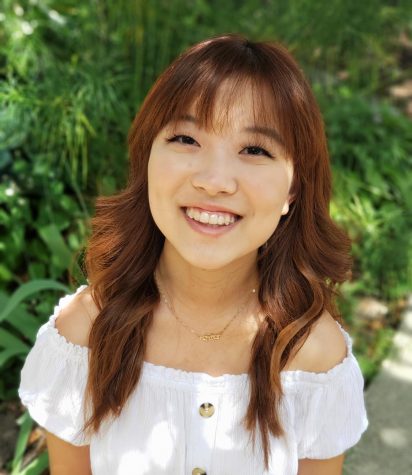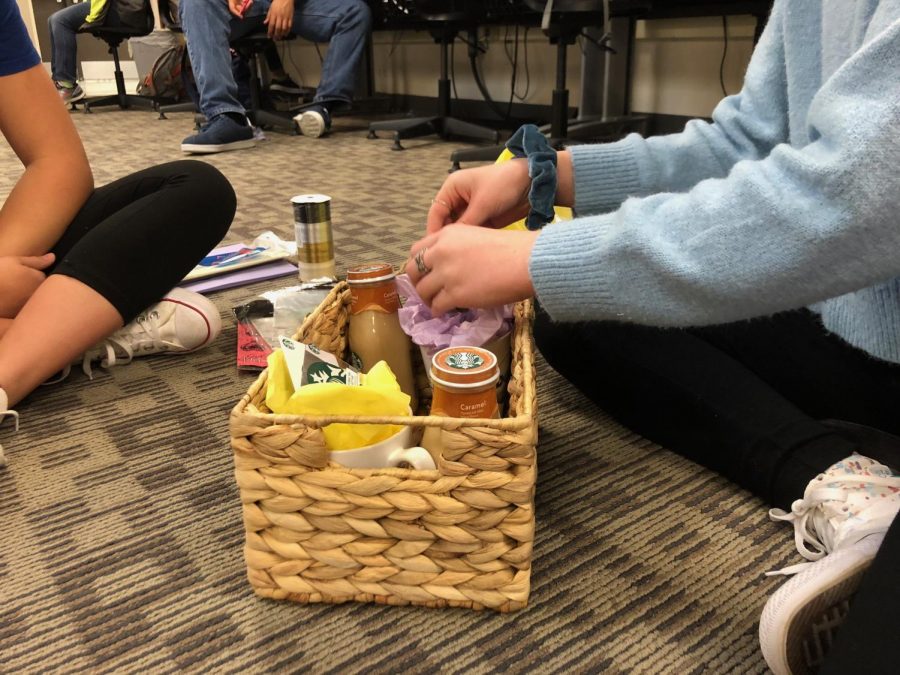Let your voice be heard by celebrating Scholastic Journalism Week
Photo by Photo by Annette Suk
Scholastic Journalism is a week where students can celebrate the work of student journalists and advocate free speech/press. During that week, students can enter a raffle the journalism program put together.
Every year, there is one specific week dedicated to the work of student journalists at the high school. While students celebrate the courage of these journalists, they can also participate in a raffle with prizes brought by the journalists. In addition to the raffle, the journalists plan to showcase the effect of censorship through Penny Wars. During Scholastic Journalism week, students can help raise awareness around laws that may restrict student journalists.
Scholastic Journalism Week is a week where students and staff acknowledge the work student journalists put out online and on publication. The work they do is important brings of voice and ownership to the student body. Bo Vossel, principal, recognizes the importance of a journalism program and the past he shares with it.
“There was probably six or seven years of my dad actually working on a newspaper when I was younger. I really gained a respect for the amount of work that goes in journalism like researching sources, making connections, and investigating,” Vossel said. “I enjoy recognizing not just the effort for journalism, but specifically our students who work really hard to try to produce something that can be informative, entertaining, and timely. So to be able to celebrate our students and staff that spend all of that time, I think it’s a great opportunity to do it.”
During the week of Scholastic Journalism, students will hear morning announcements of the events planned by the journalism students. During lunch periods, they can buy raffle tickets to bid on various prizes that have been donated by the student media program. A portion of proceeds will go to the Student Press Law Center, devoted to protecting student journalists and their rights. The other portion will go to Bear Facts for necessary equipment, such as cameras and microphones.
When the Bear Facts website appears on specific computers, the students and staff are able to access news, features, and updates on the events happening around school. These journalists bring the voice of students to life and Vossel notices the staff appreciating the articles that are uploaded on the website.
“The place where I see [the appreciation] the most is [when] I will see somebody tweet on a story. I see Dr. Osburn take something from Bear Facts and tweet it, or we’ll have a conversation about an article that has come out and I’ll get someone and say, ‘Hey, I don’t know if you saw but someone just wrote about such-and-such from Saturday’ or whatever’s coming up,” Vossel said. “It does generate conversation from time to time along the staff.”
Living in America, every citizen is entitled to their own free rights. Nationwide, many different publications publish their news and opinions due to the first amendment. Kaine Osburn, superintendent, voicing the impact of journalism and the effect it has on both students and staff.
“I would describe that impact in terms of those students exiting the program as critical thinkers who are willing to speak up and look into challenging problems they observe in the world around them, willing to question what appears to be injustice and find out more on behalf of themselves and others,” Osburn said. “It causes students and staff to question both the status quo – in order to possibly enact change – and to question changes that have been made – in order to question whom they benefit, why, and how such decisions were made. Journalism also contributes to a sense of community but helping us tell a shared story about ourselves.”
The takeaway from this week is for citizens to appreciate the rights given. People cannot take anything for granted. Rights of free press is important, but the rights of free speech is just as important and should be appreciated.

As a senior, Annette is in her fourth and final year of journalism. It is also her first year as a Business Manager. Annette is a very excited FAME leader...

